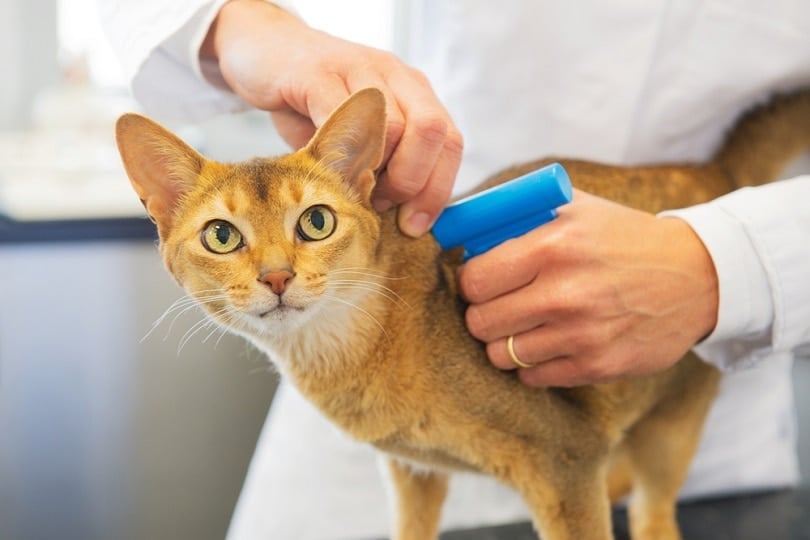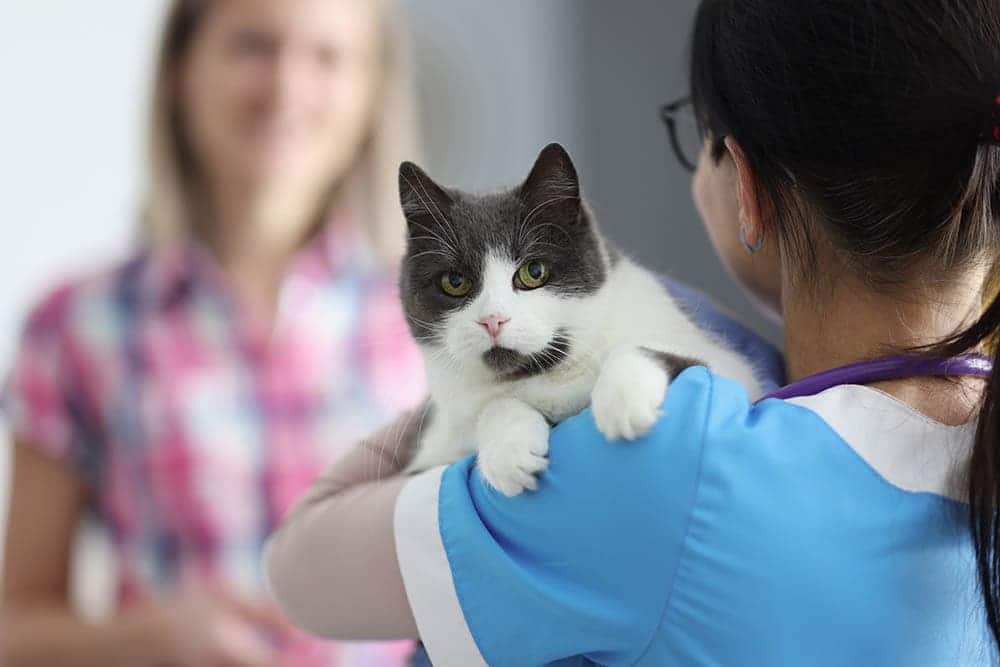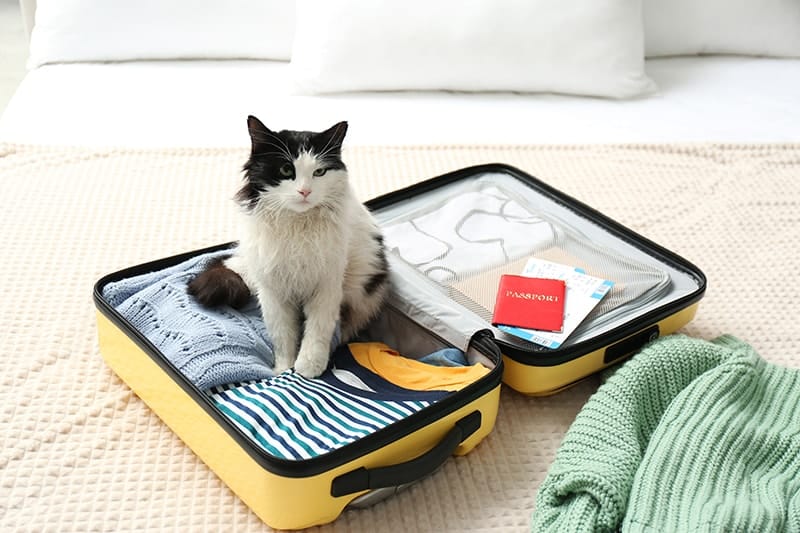A pet passport was used in the United Kingdom to easily travel with your pets through Europe. However, since 2021, when the UK left the European Union (EU), pet passports have been replaced with the Animal Health Certificate (AHC).
The AHC can be a little more expensive and trickier than the pet passport, but completing all the documentation as early as possible is vital. The best way to do that is to know precisely what you need and where to get it, so let’s take a look!
What Is an Animal Health Certificate?
The AHC proves domestic dogs, cats, and ferrets are safe to travel outside the UK. It’s valid for 10 days once signed, but when you leave the country, it becomes valid for 4 months within Europe and Northern Ireland.
If you are planning on traveling to a non-EU country, you will need a different document called an Export Health Certificate (EHC). If you currently live in England, Wales, or Scotland, you must also fill in an export application form (EXA). All the information you need can be found on the UK Government’s website.1
These documents prove that your pet meets all the relevant health requirements to travel to a specific country. It’s incredibly important that you research exactly what you’ll need before you travel because different countries have different restrictions and requirements.

What You Need to Know Before You Travel
Regarding the AHC, your pet must be at least 12 weeks old because they must be old enough to have all the relevant vaccinations. But what else do you need to know?
1. Get Your Pet Microchipped
If your pet hasn’t been microchipped, you must get it done. You will also need proof that your pet has a microchip for you to get an AHC. The chip will link your pet to the documents you provide to immigration officers.

2. Get Your Pet Vaccinated
Your pet’s vaccinations will need to be up to date, and the animal must also be vaccinated for rabies at least 21 days before you travel. It’s important to communicate where you plan to travel with your vet because different countries require different vaccinations.
You will need up-to-date tapeworm treatment to go to Ireland, Northern Ireland, Norway, Malta, or Finland. Your pet also needs to be treated for tapeworms by a licensed vet 24–120 hours before returning to the UK.
3. Find an Official Veterinarian
The AHC can only be signed off by an official veterinarian (OV), so you will need to find one who can if your local vet can’t do it. Your vet might be able to point you in the right direction if you aren’t sure where to find one.

4. Be Aware That the AHC Can Be Costly
The cost of an AHC can vary drastically depending on where you live and how much your vet charges. Prices can range from £100 to over £200.
At least five pets can be included on one AHC, but some vet clinics might charge around £100 for each additional pet, while others won’t charge anything. Others have flat rates but increase their prices if you haven’t left enough time before you travel, so it will cost you more to put a rush on it. It’s a good idea to look into all of this before you commit to one clinic, so you know what it will cost you.
5. Check Your Insurance
While your insurance probably won’t cover the cost of an AHC, you might still be able to claim back something if it’s part of their wellness check. It’s also a good idea to see if you’re covered for vet visits if anything happens while you’re abroad.

Has Traveling to the UK From Other Countries Changed?
If you travel to the UK from Europe, you can use a pet passport as you still have “Part 1 listed” status. It’s a good idea to check if your country is Part 1, 2, or not listed, as each will have different entry requirements.
You’ll need a pet health certificate if you’re from a Part 2 listed country, such as the USA. It is similar to an AHC; it must be filed within 10 days by a licensed vet before leaving the UK. Like with an AHC, your pet must be microchipped, vaccinated, and have received a rabies vaccination and tapeworm treatment if it is a dog. If you’re coming from Australia with a cat or Malaysia with a cat or dog, there are more rules you will need to follow, so make sure to research this before leaving.
If your country isn’t on the list, you will need a pet certificate as well, and there are specific rules you’ll need to follow regarding vaccinations, blood tests, and the rabies vaccination.
If you forget to file all the forms or your pet fails to meet all the proper criteria, it might have to undergo a quarantine period when you arrive in the UK. Additionally, certain dog breeds are banned in the UK, so be sure your pup isn’t on the list.
Final Thoughts
When you travel outside of the UK, there are a few things you will need to organize, and the sooner you get them sorted, the easier your travel plans will be. Instead of a pet passport, you need an Animal Health Certificate to travel within Europe and Northern Ireland. If your pet doesn’t have the right documents to prove they are safe to travel, you will have to leave them behind.
See also:
- How to Get a Canadian Pet Passport: A Step-by-Step Guide
- How to Get a US Pet Passport? Expert Guide & Tips
Featured Image Credit: New Africa, Shutterstock











